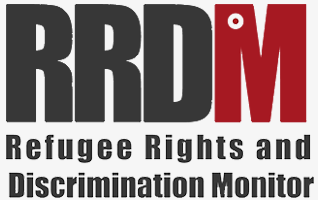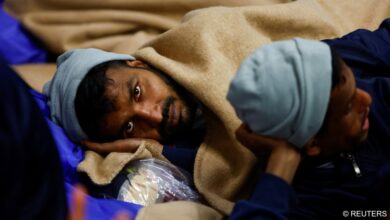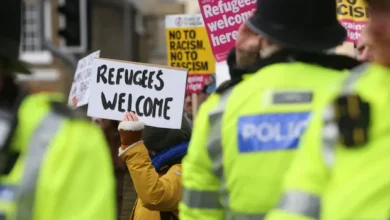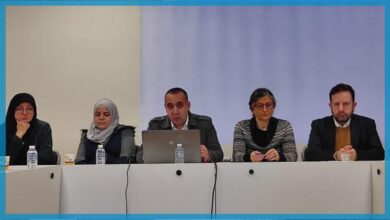“Violence and Discrimination” Against Syrian Refugees… a Debate Between Lebanon and the United Nations

Statements described as “racist” that emerged in recent weeks, and the verbal and physical violence they led to against Syrian refugees in Lebanon, led to a controversy and exchanges of accusations between the United Nations High Commissioner for Refugees and the Lebanese Ministry of Foreign Affairs.
At the outset, the UNHCR issued a statement (before it was withdrawn from its website), in which it expressed its grave concern about restrictive practices and discriminatory measures against refugees in Lebanon, which are being activated on the basis of nationality, calling on the Lebanese authorities to ensure the rule of law and an immediate end to violence and discrimination against Targets residing in Lebanon.
The official Lebanese response came through a statement issued by the Ministry of Foreign Affairs and Emigrants, in response to the increasing problems and tensions that are occurring due to the Commission’s failure to respond to Lebanon’s requests.
Most of the Lebanese officials have recently corrected their statements against the Syrian refugees, accusing them of being behind the crises in Lebanon, stressing the need for them to return to their country, where a plan has been drawn up to return 15,000 refugees per month, despite the warnings of international organizations of the dangers of forcible return.
Lebanon, with a total population of about 6.7 million, remains the country hosting the largest number of refugees per capita and per square kilometer, according to UNHCR.
The bread crisis showed the extent to which officials’ statements were reflected on the ground, where Syrian refugees were subjected to discrimination, whether by the refusal of some bakeries to sell them the bread of their day, or to separate the Lebanese queues from their queues, and it came to the fact that the Syrians were beaten by Lebanese customers.
In its statement published on July 29, the United Nations High Commissioner for Refugees (UNHCR) pointed to the increase in tension between the various groups in Lebanon, especially with regard to violence against refugees, “which leads to an escalation of violence on the ground in a number of regions and neighborhoods.”
Noting that “the economic crisis in Lebanon has a devastating impact on everyone, especially on those who are the most vulnerable among them,” the Commission stressed the need to continue “the spirit of solidarity and mutual respect that has always distinguished society in all its categories in Lebanon.”
The ministry considered that the food crisis that the world is witnessing is multiplying its impact in Lebanon, due to the economic and financial problems that the country is experiencing, noting that Lebanon has repeatedly warned that this reality will inevitably lead to competition between the Lebanese and the Palestinian and Syrian refugees over the limited food resources, especially that the refugees represent A third of the population of Lebanon and 80% of the Lebanese live below the poverty line. Undoubtedly, the continuation of this situation will lead to an increase in the level of tensions, and even the rate of security incidents against all marginalized groups.
According to the protection report, which is issued by UNHCR periodically, “the increase in threats of mass eviction of refugee camps, and the imposition of a curfew on their movements during specific hours in some towns, and in other towns it appeared that the maximum salary of Syrian domestic workers is much lower than the actual market price, was monitored.” Some municipalities prevented refugees from working outside if they were offered high wages, under the threat of forcing them to evacuate their homes.
The refugees were also subjected, according to the report, to “verbal harassment and even physical violence while standing in queues to buy bread.” At a time when some bakeries allowed them to get one bundle, others refused to sell them even one loaf, “with the spread of unfounded rumors that they are reselling bread.“
The National Commission for Human Rights in Lebanon has monitored the continuation of many municipalities in various Lebanese regions carrying out acts classified as grave violations of human rights, especially against Syrian refugees.
In a statement, it called on the local authorities to reverse any decisions such as forced displacement or curfews for refugees for racist reasons.
The commission pointed out that “the Lebanese authorities have not taken serious measures to prohibit and punish racist hate speech and incitement to racial hatred or racial discrimination, especially against refugees and asylum seekers, and not to violate Lebanon’s obligations as a party to the Convention against Torture, and customary international law, which obliges it not to return or Extradition of individuals at risk of torture and persecution to their countries of origin.
One of the decisions that were accused of racism was issued by the governor of Baalbek-Hermel, Bashir Khader, in which he referred to “the necessity of giving priority to the Lebanese citizen in light of the crisis they are suffering from to obtain bread, and the crowding over it by the Syrian refugees, as there are people who receive several bundles of bread Some of them resell it on the black market”.

Article written by:
Asrar Shabaro – Beirut




